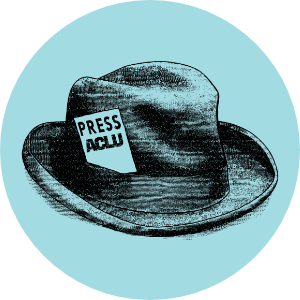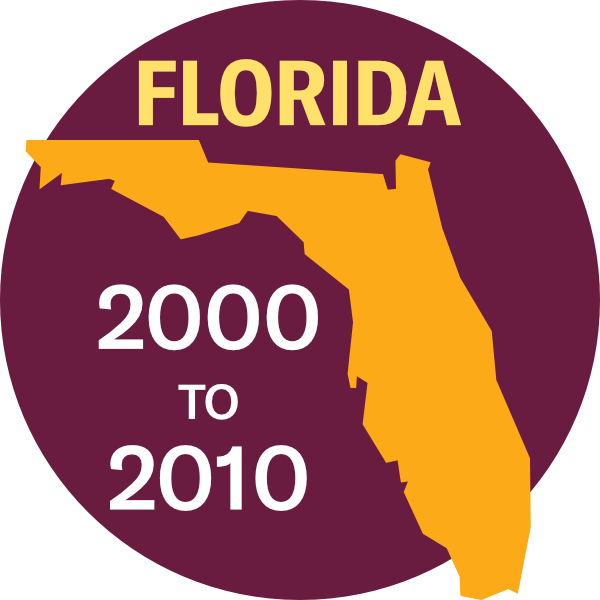Mark Dinkel still remembers the homicide trial in Riley County a few years ago that featured three African Americans in a jury pool of more than 50 people.
The prosecutor sought to excuse all three from consideration as potential jurors — and he was allowed to remove two of the three. In the end, Dinkel said, he felt fortunate to have one African American on that jury, because prosecutors routinely target minorities for exclusion from juries.
“It happens a lot everywhere. It happens a lot in Kansas.”
“It’s a huge issue,” said Elizabeth Cateforis, Clinical Professor of Law and supervising attorney for the Paul E. Wilson Project for Innocence and Post-Conviction Remedies at the University of Kansas. “It happens a lot everywhere. It happens a lot in Kansas.”
It continues to happen, attorneys say, despite a 1986 Supreme Court ruling that attorneys could not use a peremptory challenge — the dismissal of jurors without stating a valid cause for doing so — in a criminal case to automatically exclude potential members of the jury because of their race.
Justice Thurgood Marshall, in concurring with the 7-2 decision in the case Batson v Kentucky, asserted that the Court should eliminate the use of peremptory challenges in all criminal proceedings so they could not be used as a front for impermissible racial considerations. Under the current system, Marshall wrote, prosecutors are still free to discriminate so long as it is not blatant.


Eliminating the threat
That’s precisely what happens, Cateforis and other attorneys said.
“There’s literally video footage in which you can see prosecutors training other prosecutors on how to do that,” Wichita attorney Richard Ney said, referencing an August 2020 episode of John Oliver’s HBO series “This Week Tonight.”
The video from Philadelphia showed training being given after the Supreme Court’s ruling on Batson, not before.
“I tell my students, when we talk about Batson, ‘race neutral reason’ means as long as you don't say, ‘I’m striking this juror because they’re Black,’ it’s very neutral,” Cateforis said. “Even though that's the reason you're doing it. Because you can say ‘Oh, it's the neighborhood’ or ‘body language.’ That’s a classic. ‘They smiled at the defendant.’”
‘It’s not that we’re saying it’s because they’re Black, brown or broke, it’s because it is the strategy.’
There’s a simple reason why prosecutors aren’t eager to have minorities on the jury, Wyandotte County District Attorney Mark Dupree said. Studies have shown that many African Americans and other minorities have an inherent distrust in policing agencies due to the historical racism and discrimination rooted in the foundation of this country.
“Because we know these studies, both prosecutors and defense attorneys alike, it is in our minds during voir dire,” said Dupree, who is the only African American district attorney in Kansas.
“As a Prosecutor, we are trying to get a conviction. Therefore, you want to take away any type of threat to that conviction, right? This thought process hides the reality that it disproportionately removes black folks from the jury. And thus allows prosecutor to say, ‘It’s not that we’re saying it’s because they’re Black, brown or broke, it’s because it is the strategy.’ The fact is this type of strategy and thinking has kept Black, brown, and broke folks off of juries for decades, and until we deal with it, it will continue to do so.”


New laws may ‘change the landscape’
In an effort to reduce what defense attorneys view as thinly veiled efforts to remove minorities from jury pools, the California Legislature earlier this year passed a law stating that, unless the party exercising the peremptory challenge can show by clear and convincing evidence that an objectively reasonable person would view the rationale as unrelated to a prospective juror’s race, ethnicity, gender, gender identity, sexual orientation, national origin, or religious affiliation, or perceived membership in any of those groups, several reasons for exclusion would be considered invalid.
The diversity committee of the Kansas Bar Association is recommending that the 2021 session of the Kansas Legislature enact a similar law for the Sunflower State. Such a law “really puts teeth” into the Batson ruling, Ney said.
“This would change the landscape,” he said. “This truly would make Batson mean something.”
“I think it's a long overdue piece of legislation that needs to be considered”
The problem with the Batson decision is “it was one great case,” said Heather Cessna, Executive Director of the Kansas State Board of Indigents Defense Services in Topeka. “And it really just hasn't had teeth in it, to be able to enforce it appropriately since it came down. Certainly, my experience as an appellate attorney was that Batson issues were extremely difficult to prove at the district court level, even if it seems like there was some clear bias.”
The new California law and growing interest to introduce legislation in Kansas are attempts to address those shortcomings, Cessna said.
Any bill that is introduced is likely to face strong opposition, Rep. Gail Finney said, including from the Kansas County and District Attorneys Association. But that doesn’t faze her.
“I think it's a long overdue piece of legislation that needs to be considered,” Finney said. “Seeing different people go into court and rarely ever seeing any person of color in those jury pools. It’s just really disconcerting for me. How they expect to get a jury of peers and there’s not one person of color on there? And you wonder why we have a disproportionate amount of people of color incarcerated.”


Does California law go too far?
Sedgwick County District Attorney Marc Bennett said he believes the California law “goes too far” in limiting reasons why prospective jurors could be removed from a panel with peremptory strikes.
“This bill goes far beyond what Batson ever contemplated,” he said after reviewing the new California law. “I find a lot of this very problematic.”
Among the reasons for exclusion that would be considered invalid under the California law are:
- Expressing a distrust of or having a negative experience with law enforcement or the criminal legal system.
- Expressing a belief that law enforcement officers engage in racial profiling or that criminal laws have been enforced in a discriminatory manner.
- Having a close relationship with people who have been stopped, arrested, or convicted of a crime.
- A prospective juror’s neighborhood.
- Having a child outside of marriage.
- Receiving state benefits.
- Not being a native English speaker.
- The ability to speak another language.
- Dress, attire, or personal appearance.
The law goes into effect Jan. 1.
“Some of these are just total dog whistles,” Cateforis said of the examples of now invalid reasons for exclusion, since they most frequently involve minorities. “But some of them would have to make you ask further questions.”


Flowers vs. Mississippi
Ney pointed to a Mississippi case in which Curtis Flowers was tried six different times for the murder of four people in a furniture store. Over the course of three of those trials, the prosecution used peremptory strikes to excuse 31 of the 32 African Americans in the jury pools.
Flowers was convicted in each of the first two trials, but the convictions were thrown out by a higher court because of prosecutorial misconduct. The third conviction was overturned by the Mississippi Supreme Court because of Batson violations. The fourth and fifth trials ended in mistrials. The sixth trial, which included one African American juror, resulted in a conviction. But the U.S. Supreme Court overturned the conviction in 2019 because the prosecution again violated Batson during jury selection. Flowers will not be tried a seventh time, prosecutors announced in August.
In a recent felony case in Saline County featuring a Native American defendant, Dinkel said, the judge blocked the prosecutor’s attempts to remove multiple Native Americans and other minorities from the jury pool. In response, Dinkel said, the prosecutor offered a plea agreement, reducing the charge from a felony to a misdemeanor. The case never went to trial.


Impact of minorities on juries
Why would prosecutors not want minorities on juries? A study of felony trials in Florida between 2000 and 2010 provides a clue.
“The evidence regarding the impact of the jury pool on conviction rates is straightforward and striking: the presence of even one or two Blacks in the jury pool results in significantly higher conviction rates for white defendants and lower conviction rates for Black defendants,” the study “Jury Race and Criminal Trials” stated in the Quarterly Journal of Economics.
In cases with no African Americans in the jury pool, the study showed, Black defendants are convicted at an 81% rate, while white defendants were convicted at a 66% rate. When the jury pool included at least one Black potential juror, conviction rates are almost identical: 71% for Black defendants and 73% for white defendants.
Any bill addressing the limitations of Batson that blossoms in the Kansas Legislature will be closely watched, defense attorneys say.
“Being very pessimistic about Kansas, I can't believe that this would pass,” Cateforis said. “But if there’s ever any time in Kansas that something like this could at least get on the table and be discussed, now is the time, with criminal justice reform being on the table.”
The Kansas Criminal Justice Reform Commission was established by the legislature in 2019 and asked to review all aspects of the criminal justice system. But jury selection and how potential jurors are summoned were not among the issues explored by commission sub-committees.
Bennett, who chairs the reform commission, said the 2021 session of the legislature will likely be asked to extend the life of the commission another year or more.
“COVID made it difficult to get much accomplished in the last session and the members of the commission realize our work is not going to be accomplished in one year based on one report,” Bennett said. “We need at least one more year.
“If the Batson issue was not a priority for any of the sub-committees this session, it could very well be added to the discussion next year if we are given an extension.”


‘Nobody wants Batson issues’
One of his biggest issues with the new California law, Bennett said, is a provision stating that any denial of an objection to the use of a peremptory challenge on grounds listed would be subject to de novo review by an appellate court. A de novo review provides no deference to the trial judge, Bennett said.
“What that’s saying is ‘We don’t trust the trial courts to make the right decision,’” Bennett said.
There can be legitimate reasons to not want someone – of any race – on a jury if, for instance, they or someone they’re close to has had a bad experience with law enforcement, Bennett said.
“Nobody wants Batson issues, Nobody wants to have all white juries…”
“There are guys who show up and you can just tell they don’t want to be there,” he said. “The white guy with his pot leaf T-shirt on, who’s rolling his eyes at everything. You’re thinking, ‘I don’t need him on a jury, he’s just going to be difficult for everybody to deal with.’ No one’s asked me (about using a peremptory challenge to remove him from the jury pool) because he's white. Batson doesn’t apply. But, of course, I get rid of him because of this. Look at his T-shirt. Look at the way he carries himself. Look at the way he answers questions… ‘Yeah, my brother-in-law got screwed by the cops.’ You know, he’s gone. I’m not going to leave that guy on (a jury).”
But an African American man on the other side of the room “who essentially behaves in the same fashion?” Bennett asked. “I shouldn’t be able to strike him?
“Nobody wants Batson issues,” he said. “Nobody wants to have all white juries. Everybody wants to make sure that there’s a cross-section of the community” on a jury.
Cessna said she likes the language in the California law stipulating that the district court doesn’t have to find purposeful discrimination to sustain the objection.
“It allows for the possibility of the recognition that there is implicit bias, and that somebody may not be making a decision intentionally to try to remove somebody based on their race, but that the consequences of their decision still could be the basis of implicit bias or a racially impactful decision,” Cessna said.
Despite his objections to portions of the California law, Bennett said he’d be willing to be part of conversations “to see if we could come up with something that might accomplish the stated goal” of tightening exceptions by the case law subsequent to Batson.
“This is the kind of thing that is deserving of a conversation,” Bennett said.


Jury summons response rates
Yet even a Kansas law reducing unspoken targeting of minorities in jury pools doesn’t address the biggest reason juries all too often have no minority representation is that the response rate for jury duty among minorities is low, Bennett said. There’s a small pool of potential jurors to draw from, he said, because many minorities simply don’t show up. Defense attorneys concur.
“The reason we’re having low numbers of minority jurors in Wichita and Sedgwick County is because there’s no penalty”
“The reason we’re having low numbers of minority jurors in Wichita and Sedgwick County is because there’s no penalty — and everyone knows it — for not appearing for jury duty,” Ney said. “If you get a jury summons, and you don't show up, here’s what happens to you: Absolutely nothing. And that’s not true everywhere. But that’s true here.”
There are any number of reasons why the response rate is so low, Ney and others say. Like many states, Kansas uses voter registration records and driver’s licenses to create a pool of potential jurors to draw from. That leaves out those who no longer have a driver’s license or who aren’t registered to vote.
Dupree said statistics show that three demographic groups – what he likes to call “the three Bs: Black, brown and broke” – are disproportionately affected by how Kansas chooses prospective jurors.
“If a vast majority of them, disproportionately, have a bad driver's license or suspended driver's license or a felony on their record, and or don't trust the American system so they're not registering to vote, guess what? There is a lack of the three Bs in the jury pool.”
Minorities may have had to move because of unstable employment or housing situations, meaning the summons never reaches them, defense attorneys said. They may not have transportation to get to the courthouse for jury duty. They may also fear if they show up at the courthouse, they’ll end up behind bars.
“Is it the fear of getting picked up for unresolved matters or is it a general apathy born of longstanding dissatisfaction with anything representing ‘the system?’” Bennett asked. “Is it because African Americans are more likely to work at a job that is less forgiving regarding jury duty? You can’t be punished for serving on a jury, but not all jobs pay employees their normal wages while they are on jury duty. The $10 to $15 jurors get daily for service may be all you receive. I don’t think there is one reason.”


Jury duty could cost car or rent payment
When she lived in Texas more than 20 years ago, Finney said, she was paid $6 for the day she spent at the courthouse waiting to see if she would be called to be a juror. That essentially paid for her lunch that day, she said. Financial considerations are likely a major reason many minorities summoned for jury duty don’t go, she said.
“If you're in one of those jobs where you’re looking at your time schedule and just barely holding on to a job, you’re not going to take that chance,” Finney said. “And you know you’re not going to get reimbursed by your employer.”
It becomes particularly pressing if someone who isn’t likely to draw their regular pay while on jury duty is empaneled on a case that lasts multiple weeks, she said.
“You could lose your car payment or your house payment or your rent or something,” Finney said.
The fear of getting arrested for unresolved matters if you show up for jury duty is unfounded, Bennett said, because the court administrator who oversees the jury pool doesn’t have access to criminal databases.
“It’s not whether they would be arrested, it is whether they think they would,” Ney said. “If you had warrants, would you risk showing for jury duty?”
Cessna said she understands why people who might be wanted for one thing or another would be reluctant to show up for jury duty.
“If that was me, I would be afraid to show up for jury duty, for that reason,” she said.
“But in 10 years of practicing law as a defense attorney in an affluent, predominantly white neighboring county, only one case he tried had a minority on the jury.”
Courts around the country saw an increase in minorities in jury pools starting in 2008, Bennett said, because so many people registered to vote so they could vote for Barack Obama. Voter registration campaigns currently under way to increase the turnout for the 2020 election could have a similar effect, he said.
The issue isn’t just about defendants arguably getting fairer trials, Cateforis said. The Batson case doesn’t just protect defendants, it also protects prospective jurors. That’s why legislation addressing loopholes has value, she said.
“Juries tend to be become overwhelmingly white after the peremptory challenges,” she said. “We have jurors of color who are not able to be full citizens because they're getting struck from juries. And then for the defendant, obviously, not having a jury of her peers, in the way it’s contemplated. And then just the stereotypes that prosecutors and defense counsel have about jurors of color and their interaction and their likelihood to view evidence in a different light. So, to the extent that it both harms the prospective juror and the defendant, it is a big deal.”
Because Wyandotte County is one-third Caucasian, one-third Black and one-third Hispanic, Dupree said, the odds are good that juries will feature one or more minorities on them. But in 10 years of practicing law as a defense attorney in an affluent, predominantly white neighboring county, Dupree said, only one case he tried had a minority on the jury.


A piece of a bigger picture
Bennett said any legislation born of this effort has to be viewed as just one piece of a bigger picture.
“There’s other things we’re going to have to do, like addressing impediments to showing up – day care, transportation, loss of wages,” Bennett said. “That’s also got to be part of this equation. Otherwise, it’s going to be a largely symbolic and largely ineffective change.”
Dupree concurs with Bennett’s call for broader change. That should include more minority attorneys and even judges, he said. Despite being the most ethnically diverse county in the state – and one of only three in the entire country with Blacks, Hispanics and Caucasians roughly equivalent in population – 14 of the 16 court judges in Wyandotte County are white.
“So if a Batson challenge comes up in any of those courtrooms, there's a likelihood that…out of the most diverse county in the state, a white man is going to make a decision,” Dupree said. “They say that it's not racist.”
“There is systematic biases and racism throughout all of our criminal justice system…”
While it may not be explicit, he said, it’s still a problem.
“There is systematic biases and racism throughout all of our criminal justice system, and quite frankly, throughout many systems in this country, because of the history of this country,” Dupree said. “So, no, it's not going to be resolved by simply throwing more black and brown people at it.”
But the Kansas Bar Association is taking a significant stance, Dupree said, by saying, “How do we take a hard look at this, and making sure that the ground is equitable, that it is fair across the board?”
Cessna endorses a holistic approach to addressing why the jury summons response rate among minorities is so low.
“Looking at some of those more systematic issues is certainly helpful,” she said. “And to the extent that we can address some of those issues, I think that we've got jury pools that are more representative of the communities than they currently are. That would be very helpful.”
Despite the opposition it will likely face, Finney said, legislation addressing jury selection can serve as an important first step.
“Sometimes, you have to continue introducing legislation to educate the public about it to get more acceptance for it,” she said. “And once it gets more acceptance, it seems like it gets more traction. I think it will be difficult, but I think it will be worth trying.”
BY Stan Finger
Related Issues
Stay Informed
Sign up to be the first to hear about how to take action.
By completing this form, I agree to receive occasional emails per the terms of the ACLU’s privacy statement.
By completing this form, I agree to receive occasional emails per the terms of the ACLU’s privacy statement.

